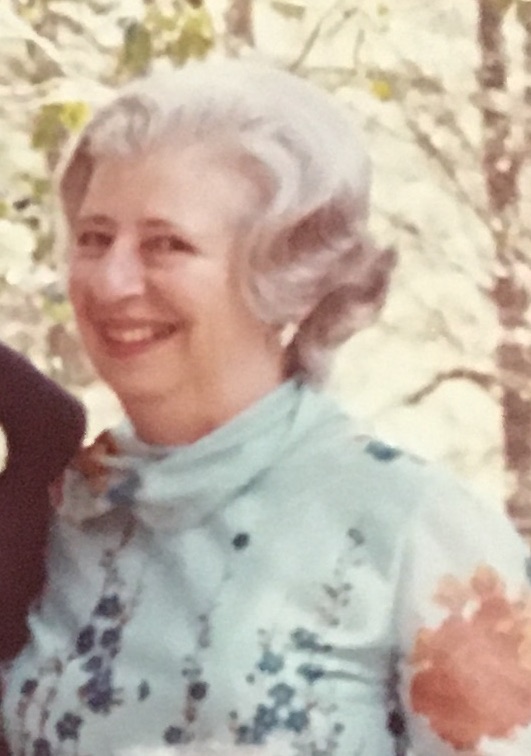
Travel Money
I’m sitting at my parents’ kitchen table, eating cereal, when my mother puts $100 next to my napkin, then sits down in her own chair and picks up the New York Times’s Sunday magazine. After breakfast, my daughter and I will drive from my parents’ house in Michigan back to our home in Washington, D.C.
“You don’t need to give me this,” I say, looking at the crisp bills. “The car has a full tank of gas, tolls go on the E-Z pass, and I don’t think we could eat $100 worth of food on the road even if we tried.”
“I know you don’t need it,” she replies, not looking up from the crossword puzzle that she’s begun filling out in pen. “But I want you to have it. If you don’t use it on this trip, you’ll use it on the next one.”
“Mom,” I protest, pushing the bills towards her. “I’m an adult with my own child.” We both automatically glance over towards the couch, where my father is reading a book with my seven-year-old daughter. “You don’t have to keep doing this. In fact, I’m pretty sure I still have money left from the last time we were here.”
“Now you have more,” my mother says blithely. I sigh and she looks up from her puzzle and pushes the bills back and says in the same firm tone I use when I want my daughter to stop arguing with me, “it’s your travel money, Sarah.”
***
My mother and father are not extravagant people. When we were kids, my older sister and I would beg for the Barbie dolls and Cabbage Patch Kids and designer jeans that our friends had. Ours was a house of PBS and NBC, Pepperidge Farm cookies and Breyer’s ice cream. At the end of each summer, my mother would herd my sister and me into her bedroom and pull out last year’s school clothes, making a list of what we had outgrown. To my eternal frustration, my sister would always get more new clothes than I did. My mother’s observation that I got perfectly nice hand-me-downs never failed to stop me from pouting.
But my parents have always encouraged me and my sister to travel. When we were in college, they bought us plane tickets to London and month-long Eurail passes. “My parents loved to travel,” my mother reminded us when they presented us with these generous gifts. “They would want us to do this for you girls.”

I have a picture of her at a party, her smile so wide I grin back just looking at her.
My mother’s father died years before I was born. He had been playing golf with friends, sat down under a tree to wait for them to catch up, and had a stroke. My mother’s mother, whom we knew as Mimi, died in a car accident when I was thirteen months old. I have no memories of her. What I do have is a prayer book that she gave me, inscribed with her elegant handwriting. I have a picture of her at a party, her smile so wide I grin back just looking at her. I have a chair that belonged to her, and pieces of her jewelry that I will never wear for fear of losing.
And I have the stories that I grew up hearing my mother and her sisters tell about their parents: how active they were in Birmingham, Alabama’s Jewish community, how social they were, how much fun they had on their many trips, and how my grandmother thought that you should always have one memorable meal in a new city. It didn’t have to be fancy or expensive, it just had to be special.
***
The first big trip that my daughter and I took together was to Tucson, to visit family for Passover. She was four years old, and had never flown across the country before. We passed the flight watching movies; my daughter was delighted that, unlike at home, I wasn’t restricting her screen time on the plane.
We spent the next day exploring Tucson. We were at a museum when lunchtime rolled around, but none of the food in the museum restaurant appealed to us. “Let’s check out the café,” I suggested, thinking that maybe we could make a meal out of snacks.
“Ice cream!” my daughter cried when we stepped inside. “Look, they have ice cream!” She pointed to the soft-serve machine behind the counter. “Let’s get that.”
I looked at my daughter, who knew very well that dessert was a once-a-day treat, something to be eaten only after she’d had protein and vegetables. And then I thought about Mimi’s advice to always have one special meal when you travel.
My daughter and I ate our soft-serve cones at a stone bench, squinting in the sun and laughing as we raced against the heat to eat as much ice cream as we could before it melted. Every trip we’ve taken together since, we always have one lunch that is just dessert. And I always have the same thought: Mimi would approve.
***
I used to feel conflicted about the travel money my mother gave me. I would spend some of it immediately: bottled water and magazines before a flight, gas and food on the drive. But since I took my mother’s instructions literally, I would always toss whatever was left in a desk drawer when I got home, since it felt wrong to spend it on anything other than travel.
I couldn’t imagine that I’d ever achieve that kind of financial stability for myself, let alone a future child.
Not that I didn’t think about it. Most of the jobs that I had in my early-to-mid-20s were low-paid and precarious; often, I didn’t know if I’d be employed from one week to the next. Sometimes I would come across the leftover travel money while looking for a pen or stapler, and I’d always experience a mix of longing and envy: longing for my parents and hometown as I tried to create a life for myself hundreds of miles from both, and envious that my parents could part with money so casually.
I couldn’t imagine that I’d ever achieve that kind of financial stability for myself, let alone for a future child. I wanted a map that would provide step-by-step directions for becoming the kind of person I wanted to be, that would show me exactly how to go from being single and lonely and worried about money to living with people who loved me and having a secure career. And every time I saw the money I thought about that future, the one that I wanted but wasn’t guaranteed to achieve, no matter how hard I worked at my career or relationships.
My mixed feelings about the travel money came to a head on a summer afternoon at the end of one of my visits to Michigan. I’d spent the majority of this trip with friends, and had had such a good time that I didn’t really want to go back to my quiet apartment and unsettled life.
My mother was driving her 1994 Saab, which didn’t have air-conditioning, with the windows rolled up against the rush of traffic on the freeway. My tank top felt glued to my back and I pushed my linen capri pants even further up my legs, so they were almost shorts.
My mother made some innocuous comment about how I’d seemed to have a good time seeing my friends, and I burst into angry tears. “Sarah, what’s wrong?” she asked.
“Everything!” I cried, staring at my red sneakers because I couldn’t bear looking at her. “It was great seeing them but now I have to leave, and it’s not that I want to move back here but sometimes it feels like it would be easier and I miss everyone.”
“Sweetheart, things will get better –”
“You don’t know that, and neither do I,” I cried, “and I worry about money all the time and you and Dad are so generous paying for plane tickets and giving me the travel.
money –” I broke off because my mother was pulling the car over to the shoulder of the highway.
“We can’t stop,” I said, taking off my glasses and wiping my eyes. “I’ll miss my flight.”
“Then you’ll take a later one, and we’ll pay the change fee,” my mother said simply, and I started crying again.
“That’s so expensive –”
“Stop,” my mother said. “You are not a burden, not financially or in any other way. Your father and I pay for your plane ticket because we want to. Same with the money I give you,” she said firmly. “That’s what my parents did for me and my sisters, and that’s why we do it for you and your sister.”
“Okay,” I said quietly, feeling suddenly exhausted.
“And Sarah, things will get better. You’re just upset and it’s hot as hell in this car,” she said, laughing even as her eyes brimmed with tears. “Trust me, you’ll be okay. Just because your life is this way right now, that doesn’t mean it’ll always be like this.”
“Thank you,” I sniffed, and my mother reached over to hug me, and I hugged her back fiercely, never wanting to leave that hot, airless car.
***
My mother was right: things did get better. Not immediately after our conversation, of course, but I gradually mapped out my own direction. Nearly two decades after that day in the car, my life has much in common with the one that I fantasized about having.
My daughter has a love of travel that would make her great-grandmother Mimi proud. Shortly before the pandemic, I took her to Paris; we climbed to the top of the Eiffel Tower and spent hours in the Louvre. It was winter and too cold for ice cream, but we had a lunch of chocolate crepes while walking to Shakespeare and Company. We’ve spent a lot of time over the past two years staring at the large map of the world that hangs above our kitchen table, brightly-colored pins marking the countries and cities we want to visit next.
I never really thought about the travel money from a Jewish perspective, beyond the fact that my Jewish mother was giving money to her Jewish daughter. But now that I have my own Jewish daughter, I think about my mother’s tradition in a new light.
I think about how my mother grew up in a Jewish community that was fiercely protective of its members, in part because so many of them had direct experience with antisemitism. I think about how proud Mimi was of that community and how deeply her life was rooted in Birmingham’s Jewish world. I think about how “home” is widely considered to be an important place of worship, and how central the family is in so many Jewish customs and traditions. Yet studies of American communities show that Jewish adult children tend to live farther away from their parents than the children of many other groups (as Lilith’s Susan Weidman Schneider pointed out in her book Jewish and Female). Somehow, both leaving home and coming home feel like they are particularly Jewish experiences.
I already know that when my daughter is old enough to live on her own, I’ll pay for her plane tickets back home, and I’ll give her $100 at the end of each visit. I’ll do my best to keep my daughter from giving the money a weight it doesn’t deserve, even as I’ve finally realized that for my mother, too, the travel money was never just about the money itself.



